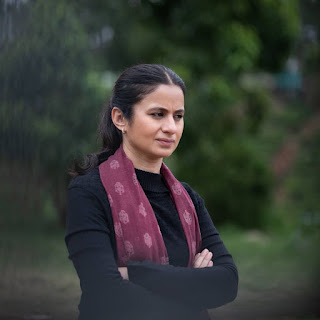Filmmaker Kabir Khan: I don't like the term migrant labour
Radhika Bhirani
rbhirani@gmail.com
"Honestly, you know, all of us are in such privileged positions... We're all good, comfortable, and we are using this time to spend as a family, because in our busy professional careers, we tend to neglect that."There was a sense of urgency, a slight discomfort that I felt as Kabir Khan answered how life had been at home in the lockdown.
Strolling within the building compound of his home in Mumbai as he spoke to me over a phone call to answer parts of an "all encompassing" questionnaire, as he described it, , Khan said, "One feels fortunate that we have the space in our building to walk around."
As much as Khan came across as someone who is cognizant and grateful for his everyday privileges during the lockdown, a part of his heart also aches for the widespread apathy towards the migrant workforce, which was left scrambling for survival as a nationwide lockdown was unleashed in March due to the Covid-19 pandemic.
The 'ghar vaapsi' of workers from cities and towns to their native places, and their plight and fight, has been a widely reported phenomenon during the past few weeks.
Acknowledging and agreeing that the crisis has "really pronounced the divide between the rich and the poor", he steered the conversation, saying "Look at the migrant labour…".
But he paused.
"Firstly, I don't like the term migrant labour. I don't know why do we use the term migrant labour? Does somebody call me migrant director because I came from Delhi to work in Mumbai? So why is this 'migrant' term used for the workers who have come to work from another part of the country? I don't like that term."
To him, simply put, "they are people who, like most of us, are working here".
"The moment you use the term 'migrant', you make then some sound like outsiders. And that's not nice," asserted the filmmaker, who believes that "whether we are rich or poor, at a time like this, everybody wants to go to the comfort of their home".
It's just that in the case of the underprivileged, they didn't have an option. And they were "caught unawares". Not having enough time to go back while they could. Not having daily wage earning jobs. Not having money to pay rents.
To Khan, the situation did not just show the divide, but also "the sort of indifference that a large section of people have to these to these sections". And that, he said, is "really sad".
On the brighter side of things, a host of Bollywood
celebrities have been Good Samaritans during the crisis, helping others to tide
over tough times. Some did it by way of charity, some helped out in arranging
transport, some reached out to people with food.
That, Khan believes, is the need of the hour -- to help people who don't have enough.
"Whoever has the capability of being able to give
today, must give, because nothing is enough. The scale of the problem is so
huge that everybody has to contribute," he said, adding that the onus
doesn't lie on the government alone.
"The civil society, and any person who has the means to be able to contribute, must contribute. There's a lot of suffering out there, and we really need to make sure we do something because how can any one of us be comfortable knowing that there are so many people out there suffering away? People are dying."
And the news highlights are a rude reminder everyday.





Comments
Post a Comment